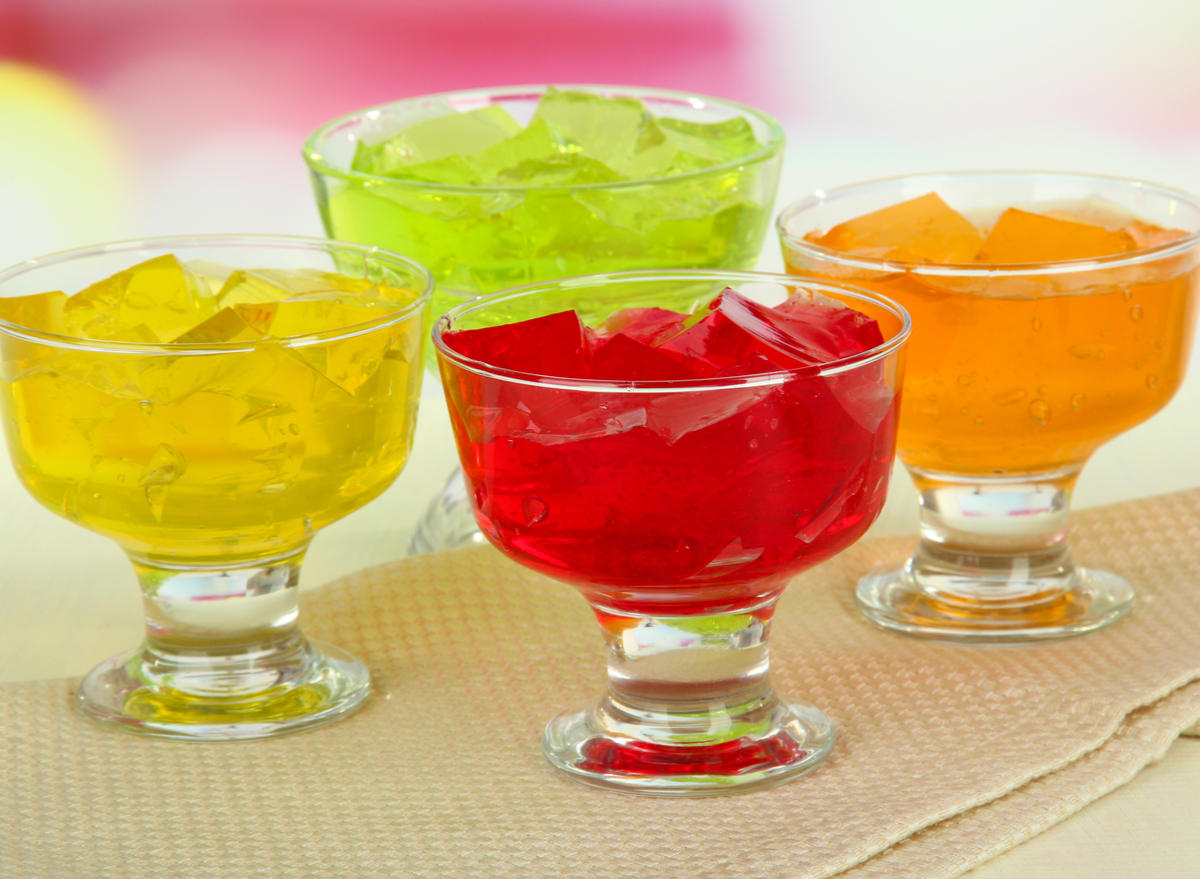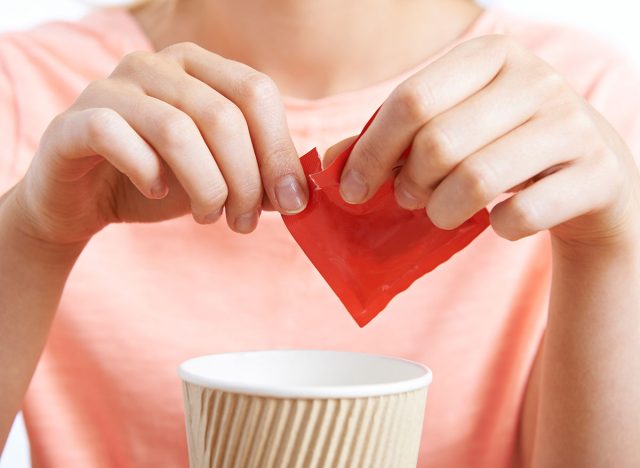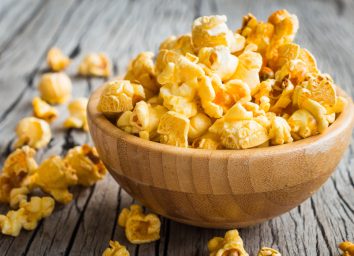What Are Artificial Flavors? And Why They’re in Your Food

Your favorite meals may owe their tempting, scrumptious, and oh-so-satisfying taste to delicious natural sweetness, saltiness, or savoriness. It might also be utterly delectable due to certain seasoning combinations and enhancing herbs. Or, the food you’re eating might contain artificial flavors.
“Artificial flavors are chemical compounds used to make food achieve a certain taste, but it is important to note that all components of our food, whether natural or artificial, are made of chemicals, even water,” says dietitian Laura Burak, founder of GetNaked Nutrition and author of Slim Down with Smoothies.
For more, check out 5 Toxic Food Ingredients That Have Been Linked to Health Issues.
She explains that natural flavors come from natural sources like fruit, while artificial flavors do not. However, both are used in food science to make packaged foods tasty—whether it’s cheesy, buttery, or cinnamony—and chemically, they’re not so different from each other. Some common artificial flavors used to make foods taste sweet are vanilla or fruit, and for savory notes, herbs, butter, or buffalo flavors are used.

When it comes to concerns around artificial flavors, Burak says the panic is unfounded.
“Many ‘health influencers’ now are peddling fear about the use of artificial flavorings in your food. But the fact is no matter how you look at it, your diet in this day and age will be processed” she says. “Even ‘healthy’ and ‘natural’ foods like quinoa undergoes processing to remove the grain from the plant and package it up nicely into a little bag for you to cook at home.”
As for potentially eliminating artificial flavors from your diet, Burak explains that the only ones she’d recommend limiting or even eliminating are artificial sweeteners like aspartame and sucralose (Splenda), which are often used in soda, candy, canned food, baked items, and jams and jellies. There have been concerns in the past regarding the possible connection between artificial sweeteners and illnesses such as cancer. While there is apparently no solid evidence to back this up, and Burak says “they are technically safe to consume,” she also notes she hardly ever sees them helping people move towards their health goals.
“These sweeteners are hundreds of times sweeter than sugar, so they can increase your threshold for that sweet taste you crave and make it harder to wean yourself off of sugar—an addiction I believe is the biggest health issue in our country,” Burak explains. She adds that she’d recommend you go for the real thing.
“A little bit of real sugar is much less sweet and can get your taste buds back to a baseline of tasting food, without that super sweet taste that is masking its true flavor.”
To find out more about what might be in your food, be sure to read 6 Toxic Food Ingredients That Have Been Linked to Cancer.









